One of my biggest goals for this year was to find more opportunities to speak publicly. I have always wanted to be a confident public speaker, and I realized that the only way I could feel more confident was to just do it. This month I have done 3 presentations, which feels like a lot for me! I was particularly excited about the most recent one because it was my first solo speaking gig where the content was all curated and put together by me (including hand drawn slides that I think are super lovely to look at).
My task for this presentation was to speak to a room of very overwhelmed harm reduction workers at the end of a long and stressful day of training and bad news; I chose to speak to them about the importance of joy. Joy is feeling especially mysterious and hard to find lately, and I thought my substack friends might want to hear about it to. This is an edited version of my presentation because it was very specific to harm reduction work, but don’t you even worry, I put my super cute slides here so you get to see them because it was maybe possibly the best part of the whole thing.
*****************************************************
Joy can feel very elusive, especially for those of us face to face with the harms caused by oppressive systems. If you are a people helper, there’s a good chance you are well aware of the harms I’m talking about. But, regardless of who you are, you are living in a time where we are collectively watching a lot of things fall apart in front of us. Structures we felt safe in are feeling much more precarious, and that is overwhelming.
One of the hardest parts is seeing how our systems are failing people publicly and (seemingly) proudly. People all around us are hurting.
Being in the midst of so much hurt, hurts.
All of this left me feeling stuck when I tried to find something to say about joy. So, I did what I often do when I am having a hard time writing; I picked up a book.
I decided to revisit We Want To Do More Than Survive by Betinna L. Love, a book about public education in America. As I was paging through it I came across the following words and felt my heart expand:
“Finding joy in the midst of pain and trauma is the fight to be fully human.”
What I like about that description is that it acknowledges that we live in a world that often doesn’t want us to be whole. We are at the mercy of so many systems of control that want us to comply, and do what we’re told. Quietly.
We are pressured to be the most acceptable versions of ourselves around others, and to deny ourselves things that make us feel good. This values control over all else, and both indulgence and expression directly contradict control. There are both spoken and unspoken guidelines that dictate what we should be proud of and what we should not, and there is so much shame wrapped up in feeling our joy, because it is labeled as selfish. Unimportant. Useless. How many times have you felt shame for indulging in something that soothes you, like smoking a cigarette or watching tv all day? Have you ever felt guilty for calling in sick when you weren’t sick? Can you recall the last time you had to set your feelings aside because you were worried they would take up too much space, or be seen as inappropriate?
Within these structures, there is no room to be fully, messily, human. We are steeped in coercion and control, and being in touch with our joy (recognizing the things that make us feel GOOD instead of only the things that make us feel BAD) actually disrupts those systems because we are intact instead of disconnected.
In systems so set on denying us our full humanity, we would all do well to hold tightly to our wholeness.
In my experience, many of us are excellent at holding space for hurt, but making space for joy can feel a lot harder. When I was thinking about why that might be, I continued coming back to my own underlying feelings of guilt.
When we know there are people around us who are being denied their right to basic needs, their right to survival, how can we let ourselves feel joy? I have been caught in this trap (I bet you have too). While this might seem like a noble effort, it has left me feeling more empty and exhausted than righteous.
What I have learned about joy is that it doesn’t happen separate from hardship; it happens in the midst of it.
Feeling joy doesn’t mean disconnecting from the things that make us sad or overwhelmed or anxious, because detaching from those feelings doesn’t bring us any closer to wholeness. In the words of Brene Brown, “If we numb the dark, we numb the light”. Our capacity to feel hurt deeply is proof that we can feel joy with the same fervor and intensity. They are not separate- they are two sides of the same coin.
Letting joy land and take root in us is how we keep going, it is the foundation that sustains us.
If we want to move towards wholeness, then denying myself or anyone else joy is robbing us of that wholeness. And when we show up in our fullness, it gives other people permission to show up as themselves too. Strengthening connections combats loneliness and isolation, leading to better outcomes for all of us.
And, because I am a mental health professional, I would be doing a disservice if I didn’t remind us all that our brains are wired for threats- that’s their whole job. So of course it is easier to think about things that are threatening the safety of us and the people we love! Of course we are laser focused on hurt and harm and pain! This is just another argument in favor of intentionally noticing joy. When hardship and injustice are screaming for us to give up, we need to hold tight to the (sometimes very quiet) joy that keeps us going.
So we want to show up as our fully human selves, because that’s how we challenge harmful systems, combat loneliness and isolation, and heal our hearts. But how do we actually DO that?
My strategy for this is less about doing and more about seeing. I only want to give you this:
Joy doesn’t need to be chased, it only needs to be noticed.
My favorite thing about noticing is that, once you notice something, you can’t UN-notice it. A lot of this practice starts with reflective questions that you can keep in the back of your mind, plant them like little seeds and see if they take root. I want to offer you a few that came up for me while putting this together:
What brings you closer to your joy?
Where do you meet that joyful part of yourself each day?
How can you turn your attention towards it?
How can you widen your scope to hold both the hurt AND the joy?
I have spent time asking myself all of these questions over the last few weeks, and I noticed a lot of joy.
On even the hardest day I can tune into the joy of getting to be in community with others.
I can take a moment of pause in moments where I am lucky enough to get to see someone and be seen by them.
I can notice the joy of having a small moment of quiet during my day.
Above all, I can be present with the complexity of your humanness, and in that presence I can recognize mine too. And that brings me immense joy.
We are all working together to build a better world, and that world will not be worth making if we can’t enjoy it. Make space for the things that fill you up, because you deserve to be fully human and we want you here.
(hopefully that was as nice to read as it was to listen to)




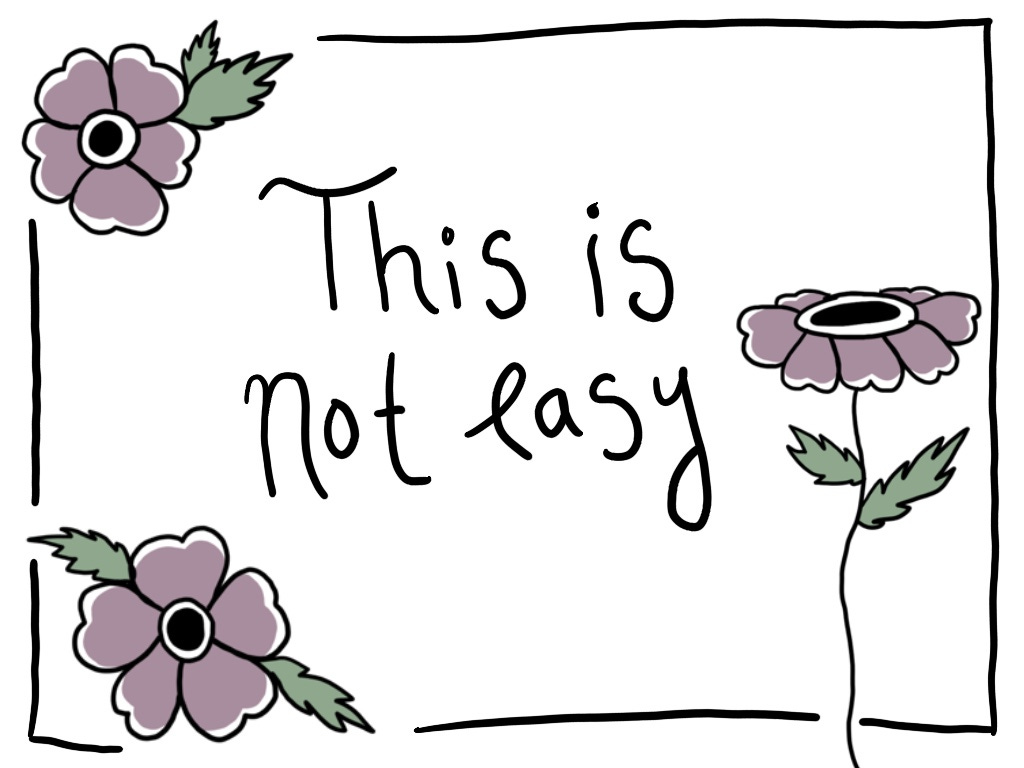

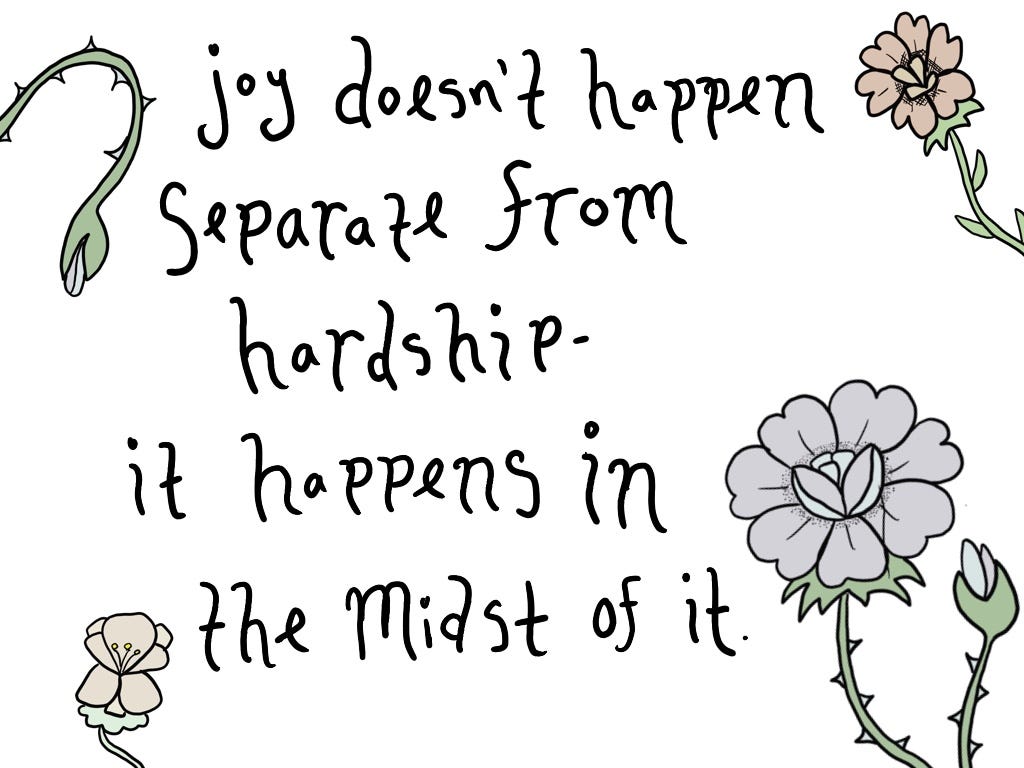
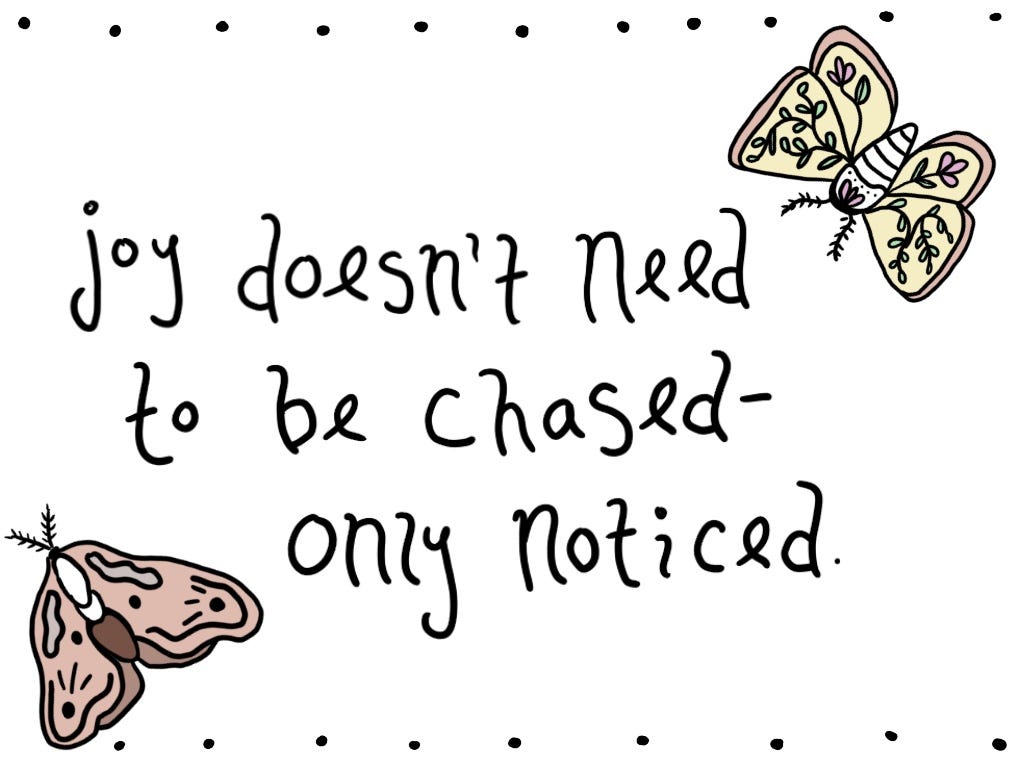
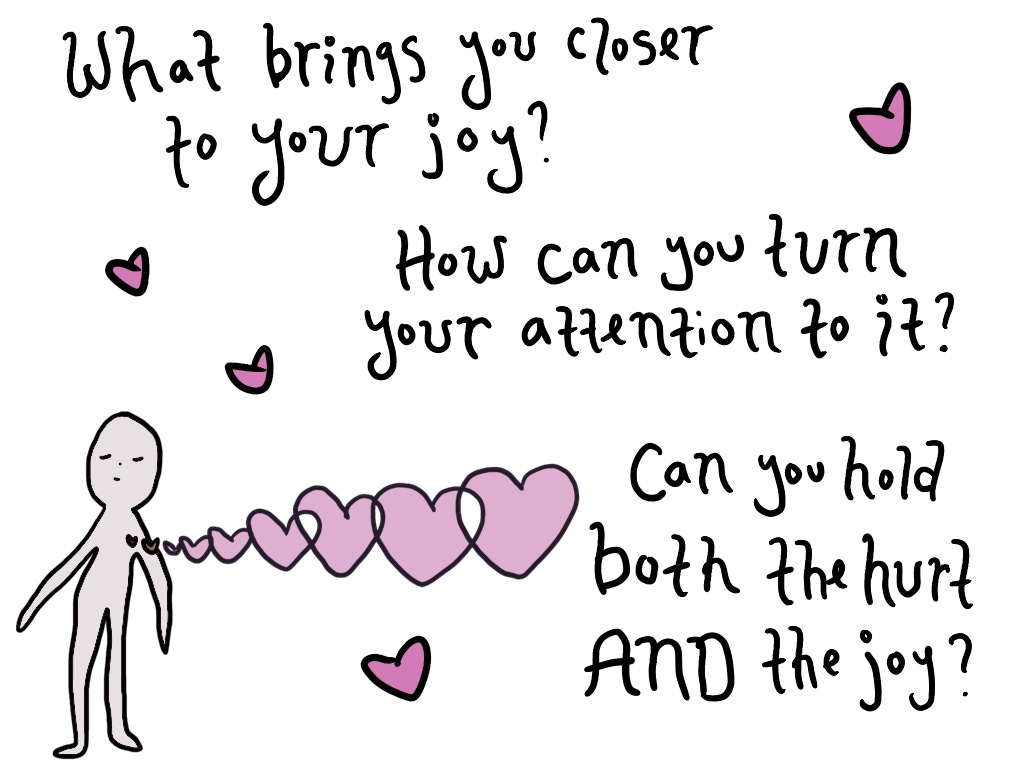
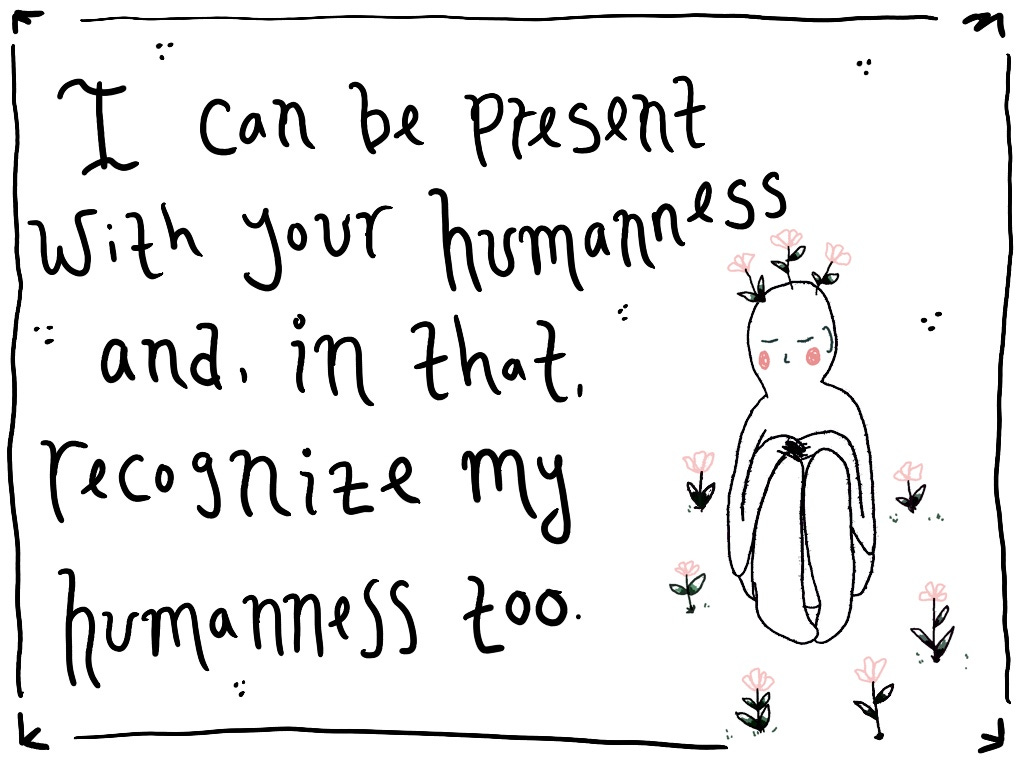
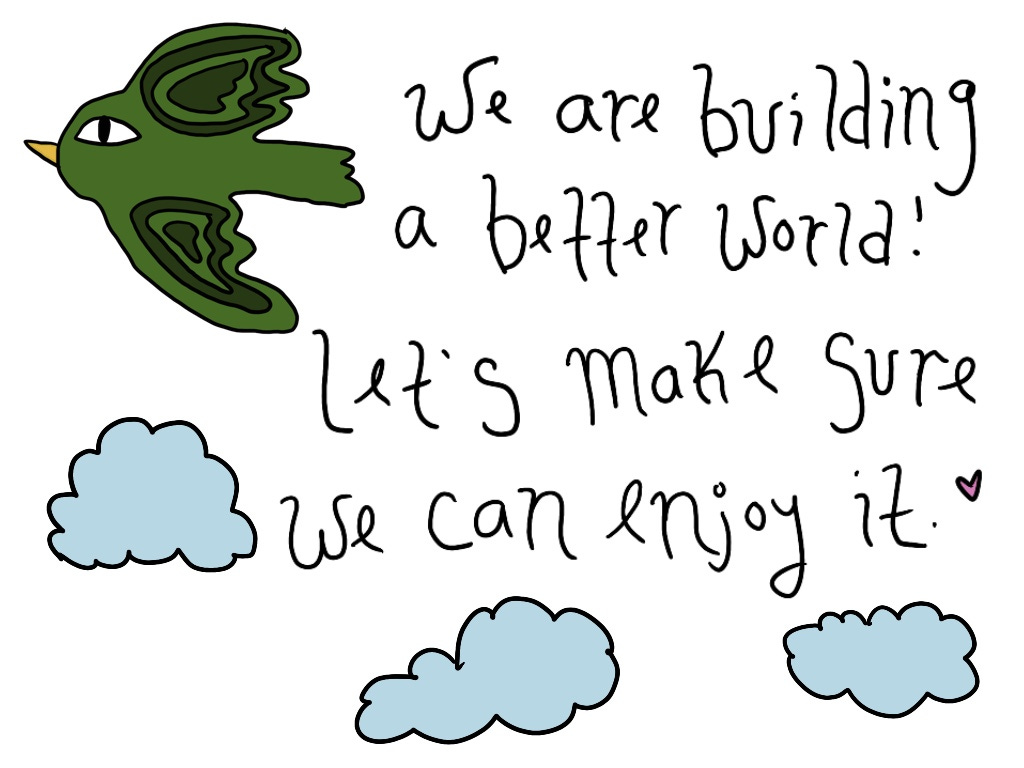
I love your super cute slides and wish I could copy them to put up. What you have written here is so good and reminds me to take the time to notice when I feel joy, when I find it. Thank you for your insights.